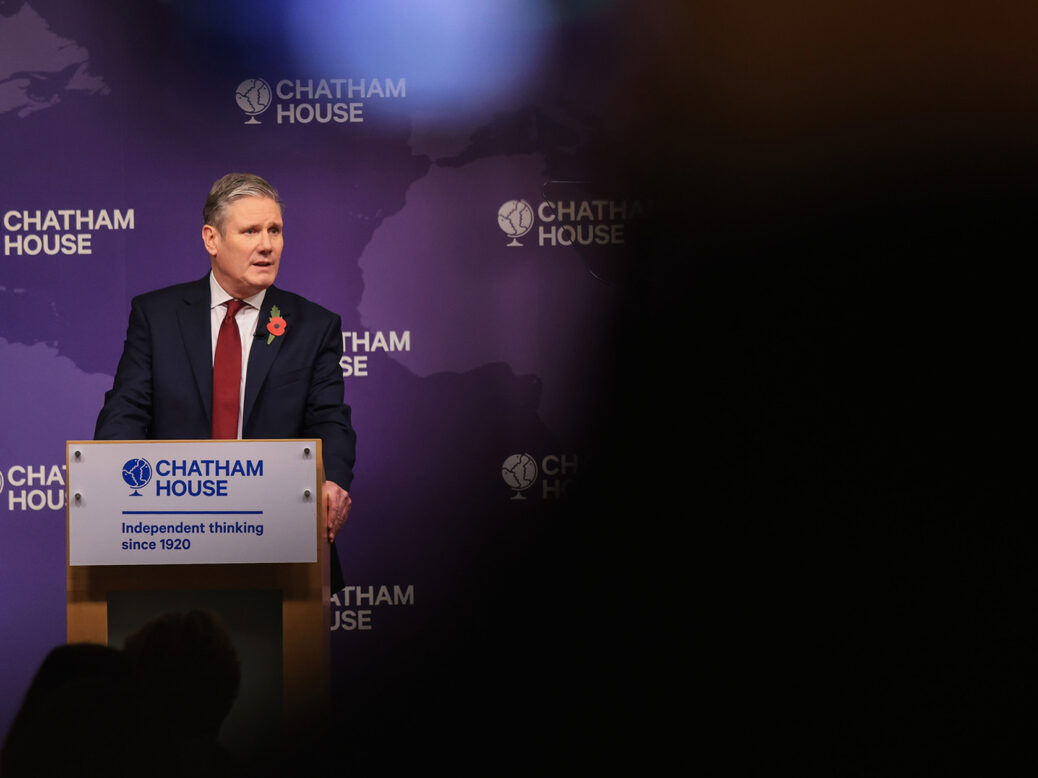
Keir Starmer’s speech on the Middle East today (31 October) followed the most significant internal revolt since he became Labour leader in 2020. More than 60 MPs, including 15 front-benchers, as well as Sadiq Khan, Andy Burnham and the Scottish Labour leader Anas Sarwar have backed a ceasefire in Gaza in defiance of the leadership’s position.
Starmer, who has supported “humanitarian pauses” in the fighting, said: “While I understand calls for a ceasefire at this stage, I do not believe that it is the correct position now.”
He argued that an immediate cessation in hostilities would hand Hamas the opportunity to attack Israel again. “Hamas would be emboldened and would start preparing for future violence immediately,” he said. “It is of course also holding 200 hostages. You cannot freeze that situation without denying a sovereign state its self-defence.”
But he opened the door to supporting a ceasefire once Israeli hostages are released. “Over time, the facts on the ground will inevitably change in relation to both hostages being rescued and Hamas’s capability to carry out attacks like we saw on October 7,” he said. “And we must move to cessation of fighting as quickly as possible because the reality is that neither the long-term security of Israel nor long-term justice for Palestine can be delivered by bombs and bullets.”
The speech, at the Chatham House think tank in London, was a thoughtful one in which Starmer reiterated Labour’s desire for a two-state solution to the conflict, said Palestinians forced from their homes must be given “crystal clear guarantees that they will be able to return quickly”, and underlined that Israel’s “right to self-defence was fundamental but not a blank cheque”. He also said the international community had for too long put the Middle East peace process in the “too difficult box”.
But the majority of questions from the media focused on the divisions within Labour and Starmer’s struggle to maintain party discipline. He insisted that collective responsibility had not been “suspended” – despite no action being taken against rebel shadow ministers – but added: “It needs to be done with an eye on the context and what we are facing.” It is unclear whether shadow ministers who have backed a ceasefire could still be sacked and are being given a chance to fall into line.
Starmer, who was led through a crowd of protesters as he left the building, also alluded to the LBC interview in which he appeared to suggest Israel had the right to withhold power and water from Gaza, by stating he would no longer give a running commentary on military action at lecterns or “broadcast studios”.
With some front-benchers privately threatening to resign, Starmer has not quite thrown down the gauntlet to colleagues defying him. But he has signalled there is a path he believes it would be logical for them to take.
[See also: The fatal flaw in Israeli deterrence]






